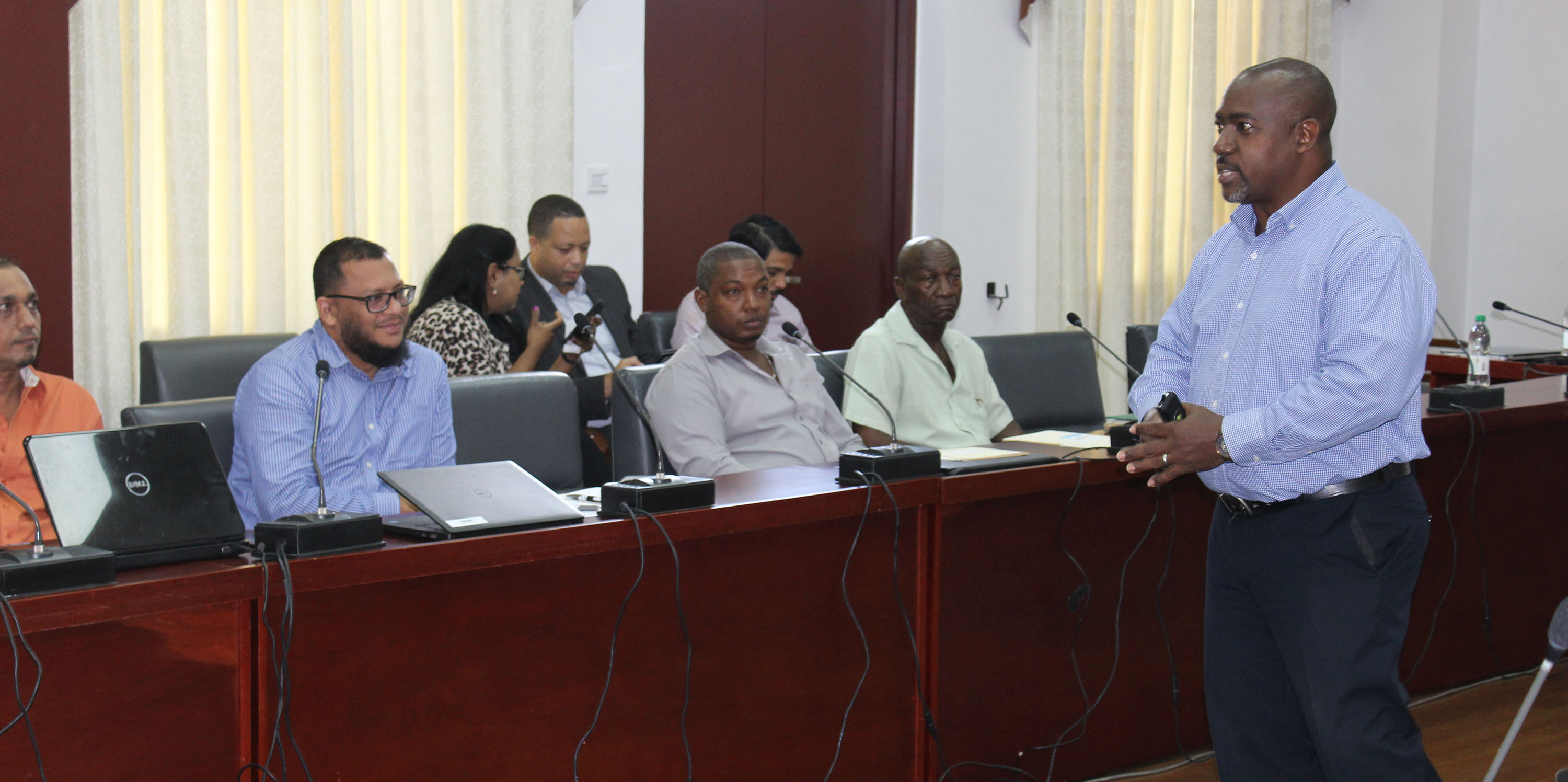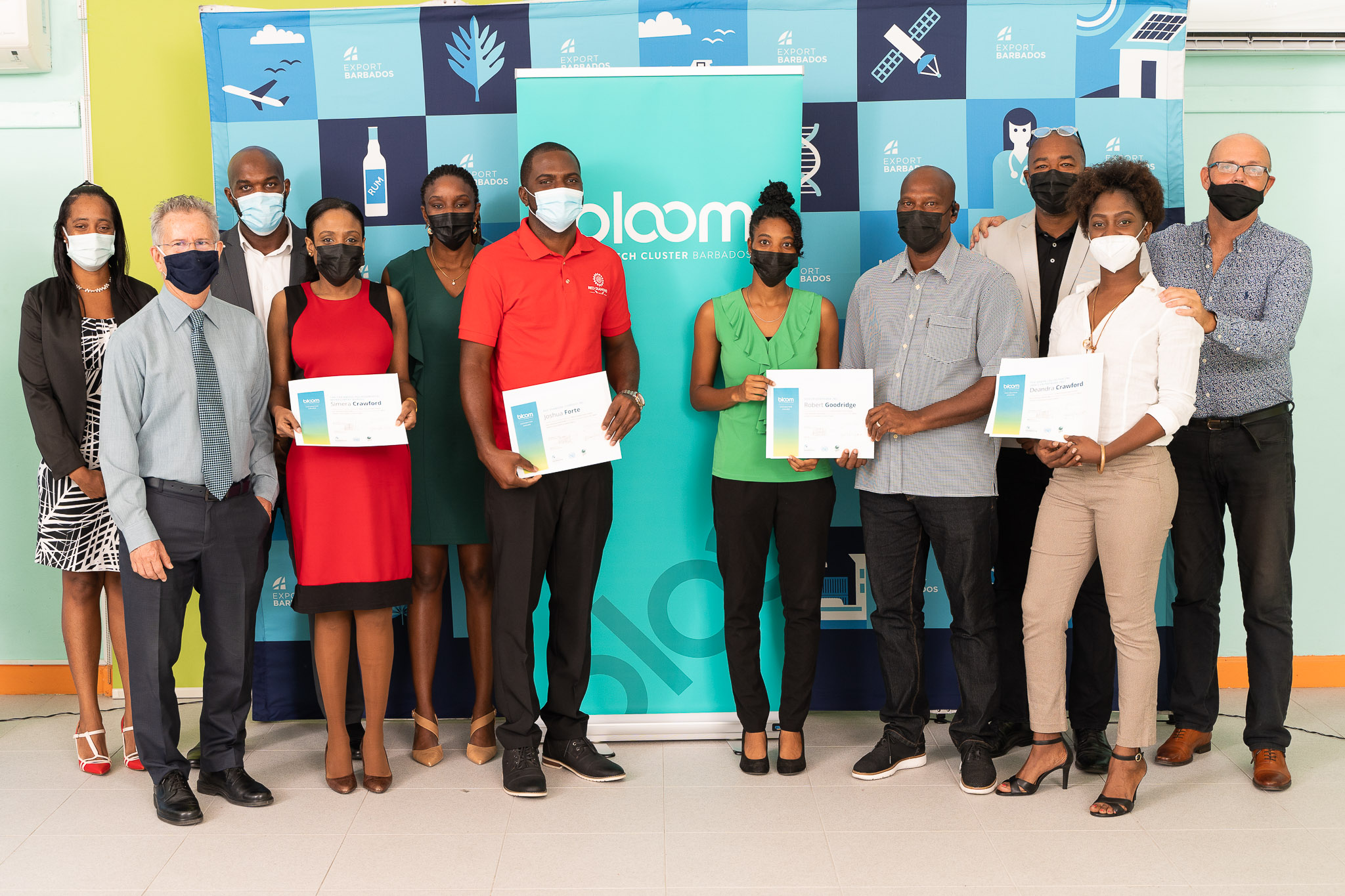Barbados heads towards a green circular economy

The future of the green circular economy and the benefits for Barbados, provided the theme of the virtually held three-part CleanTech Dialogue series hosted by the BLOOM CleanTech Cluster Barbados and Atom Solutions Incorporated.
With greater focus being placed worldwide on products, services and processes which can improve energy efficiency, while reducing negative environmental impacts, Barbados is getting involved in that revolution. Over the three days, November 24-26, a range of presentations and discussions confirmed the crucial role that the green circular economy can play in the further development of Barbados and its economy. Each day put the spotlight on a different theme – the Circular Economy, Emerging Technologies and Enabling Technologies, respectively, to connect stakeholders, existing and potential, with the information they require to successfully operate in the sector.
Day 1 brought together a team of experts to examine issues related to the Circular Economy. Participants attending the session heard about the work of the Fair Trading Commission (FTC), the Compete Caribbean Program and the GreenToCompete Initiative, and how their work could potentially impact the development of the Circular Economy. Stephanie Pemberton, a practitioner in the circular economy, also offered insight into how to launch projects in the sector.
Opening the session, CEO of Atom Solutions Incorporated and Project Coordinator of the ‘Strategic platform to promote sustainable energy technology innovation, industrial development, and entrepreneurship in Barbados Project’, Dr. Erwin Edwards, underscored the importance of Barbados transitioning to a green circular economy.
He indicated that as businesses engage in such efforts, those companies which are producing new products in the CleanTech space by way of recycling, must be fully aware of their responsibilities vis-à-vis their customers. As such, he offered some insight into the operations of the FTC, particularly as it relates to consumer protection. Dr. Edwards warned participants that especially new products made from non-traditional materials, could spark consumer issues. For that reason, he said that information that would help entrepreneurs to create products that are acceptable to customers, is vital.
Adding to the discussion, Executive Director, Compete Caribbean, Dr. Sylvia Dohnert, spoke of the US$27 million multi-donor Compete Caribbean Partnership Facility. That programme seeks to promote economic growth, boost productivity and encourage innovation and competitiveness in the region through technical assistance.
At present, she said that the facility is financing 47 technical assistance projects in Barbados and the wider region. Dr. Dohnert explained that “in terms of the circular economy projects, which is a subject of this dialogue, 28 percent of the submissions that we got in the two calls that we did, one on 2019 and one in 2020, were circular economy projects. So plastics recycling, and plastics that were taken from the ocean, Sargassum projects, etc.”
During Day 2, participants were enlightened about emerging technologies - technologies which have not been fully developed or put into widespread practical use – and what steps are being taken to make use of those technologies locally. Examples of exactly such efforts were referred to in presentations and discussions led by representatives of the University of the West Indies, Cave Hill Campus; the Barbados National Oil Company Limited (BNOCL); the Barbados Renewable Energy Association; and the Ministry of Innovation, Science and Smart Technology (MIST).
Charles Cyrus, Director of Science, Market Research and Innovation at MIST, reflected not only on the accelerated advancement of digital technologies locally, due to the onset of the COVID-19 pandemic, but insisted that more is needed, in both the public and private sectors to help maintain competitiveness. Operations Manager of BNOCL, Terrence Straughn, speaking on energy production, outlined what steps were being taken by the state-owned oil company to make greater use of renewable energy to help meet the various energy needs of the country. He disclosed that approximately 15 projects will be launched over the coming year, totaling 10 megawatts.
Speakers in the final dialogue session delved into the topic of enabling technologies in the thrust towards the green circular economy. Contributions were made by the Fair Trading Commission, the Barbados National Oil Company Limited, the Delegation of the European Union to Barbados, Caribbean Export Development Agency, CARICOM Secretariat and Barbados Chamber of Commerce and Industry (BCCI).
Programme Manager Energy, Delegation of the European Union (EU) to Barbados, Kyle Farnum and Markson Gill, Advisor on Competitiveness and Export Promotion at Caribbean Export, both spoke of their respective entity’s commitment to assisting with the development of renewable energy in Barbados and the Caribbean. They also signaled the intention to do more of that work in the future given the inherent vulnerabilities in the region.
In his closing remarks, United Nations Industrial Development Organization (UNIDO), Cluster Manager, Jari Aaltonen, lauding the various presenters from both the public and private sectors for the knowledge imparted over the three days, said such discussions are critical to the development of the green economy and advancing CleanTech generally.
Mr. Aaltonen added, “My sincere hope is that we can continue these policy dialogues in the coming months and years, and I do hope that we are not ending this exercise here, and there will be new policy dialogues in the second quarter of next year in April to June”.
In excess of 60 persons participated in the dialogues over the three days, which will no doubt redound to the benefit of Barbados’ sustainable development efforts.


